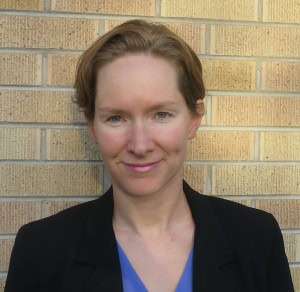AHA members are involved in all fields of history, with wide-ranging specializations, interests, and areas of employment. To recognize our talented and eclectic membership, AHA Today features a regular AHA Member Spotlight series.
 Lucy Chester is an associate professor of history and international affairs at the University of Colorado, Boulder. She lives in Boulder, Colorado, and has been a member since 2001.
Lucy Chester is an associate professor of history and international affairs at the University of Colorado, Boulder. She lives in Boulder, Colorado, and has been a member since 2001.
Alma mater: PhD, Yale, 2002; BA, Yale, 1996.
Fields of interest: South Asian history, British imperial history, decolonization
When did you first develop an interest in history?
As a kid, I devoured my local library’s biographies of Elizabeth I and Mary, Queen of Scots. I was also fascinated by ancient Egypt. I can still vividly picture those books, which sparked a lasting appreciation of libraries and librarians. In college, I focused on literature and international affairs, two disciplines I still love, but when I entered grad school in history, it felt like coming home.
What projects are you working on currently?
I’m writing a book about connections between British India and the Palestine Mandate in the 1920s, 30s, and 40s. Initially, I expected to concentrate on analyzing how British policy in one area affected imperial decisions in the other, especially in regard to partition. But I’m more excited about the connections I’ve found between Indian nationalists, Palestinian Arabs, Zionists, and others.
Have your interests changed since graduate school? If so, how?
Honestly, I’m still really excited about many of the issues I explored in the dissertation that became my first book (now available in paperback!): nationalism, imperialism, decolonization, boundaries, and cartography. Their interaction in 20th-century South Asia provides a rich field of study. I feel I still have lots of ground to cover there. It has also been fun (as well as daunting) to venture into Middle East history and to look at how these themes play out in another region.
Is there an article, book, movie, blog etc. that you could recommend to fellow AHA members?
I get a lot of useful ideas from the Tomorrow’s Professor Listserv. It’s aimed at scientists and engineers, but a good percentage of the posts deal with pedagogical and research issues that are relevant to historians.
What do you value most about the history profession?
I still can’t believe I get paid to read about and travel to the parts of the world I find most fascinating. For me, archival work and writing up my findings are the best parts of the job. It’s such a thrill stumbling across an unexpected document in an archive research room. And sharing the fun of research with my students is the most rewarding part of my teaching.
Why did you join the AHA?
I initially joined the AHA so I could attend the annual meeting when I entered the job market. I’m still here because it’s important to me to be a member of the historical community.
Other than history, what are you passionate about?
When I need a break from work, I escape into novels, especially those of Jane Austen, Dorothy Sayers, and Patrick O’Brian. I’m also fortunate to live in a town with great opportunities for running, swimming, and triathlon. My greatest joy is my family, especially my husband, my six-year-old daughter, and my six-month-old son. I do wish I got a bit more sleep.
Any final thoughts?
I’m so grateful for the mentorship I’ve received and the friends I’ve made in this profession. In my experience, historians are wonderfully intellectually generous—and know the best bars.
This post first appeared on AHA Today.
This work is licensed under a Creative Commons Attribution-NonCommercial-NoDerivatives 4.0 International License. Attribution must provide author name, article title, Perspectives on History, date of publication, and a link to this page. This license applies only to the article, not to text or images used here by permission.